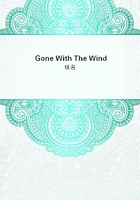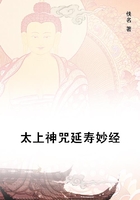HEAVEN had given to Glaucus every blessing but one: it had given him beauty, health, fortune, genius, illustrious descent, a heart of fire, a mind of poetry; but it had denied him the heritage of freedom. He was born in Athens, the subject of Rome. Succeeding early to an ample inheritance, he had indulged that inclination for travel so natural to the young, and had drunk deep of the intoxicating draught of pleasure amidst the gorgeous luxuries of the imperial court.
He was an Alcibiades without ambition. He was what a man of imagination, youth, fortune, and talents, readily becomes when you deprive him of the inspiration of glory. His house at Rome was the theme of the debauchees, but also of the lovers of art; and the sculptors of Greece delighted to task their skill in adorning the porticoes and exedrae of an Athenian. His retreat in Pompeii--alas! the colors are faded now, the walls stripped of their paintings!--its main beauty, its elaborate finish of grace and ornament, is gone; yet when first given once more to the day, what eulogies, what wonder, did its minute and glowing decorations create--its paintings--its mosaics! Passionately enamoured of poetry and the drama, which recalled to Glaucus the wit and the heroism of his race, that fairy mansion was adorned with representations of AEschylus and Homer. And antiquaries, who resolve taste to a trade, have turned the patron to the professor, and still (though the error is now acknowledged) they style in custom, as they first named in mistake, the disburied house of the Athenian Glaucus 'THE HOUSE OF THE DRAMATIC POET'.
Previous to our description of this house, it may be as well to convey to the reader a general notion of the houses of Pompeii, which he will find to resemble strongly the plans of Vitruvius; but with all those differences in detail, of caprice and taste, which being natural to mankind, have always puzzled antiquaries. We shall endeavor to make this description as clear and unpedantic as possible.
You enter then, usually, by a small entrance-passage (called cestibulum), into a hall, sometimes with (but more frequently without) the ornament of columns; around three sides of this hall are doors communicating with several bedchambers (among which is the porter's), the best of these being usually appropriated to country visitors. At the extremity of the hall, on either side to the right and left, if the house is large, there are two small recesses, rather than chambers, generally devoted to the ladies of the mansion; and in the centre of the tessellated pavement of the hall is invariably a square, shallow reservoir for rain water (classically termed impluvium), which was admitted by an aperture in the roof above; the said aperture being covered at will by an awning. Near this impluvium, which had a peculiar sanctity in the eyes of the ancients, were sometimes (but at Pompeii more rarely than at Rome) placed images of the household gods--the hospitable hearth, often mentioned by the Roman poets, and consecrated to the Lares, was at Pompeii almost invariably formed by a movable brazier;while in some corner, often the most ostentatious place, was deposited a huge wooden chest, ornamented and strengthened by bands of bronze or iron, and secured by strong hooks upon a stone pedestal so firmly as to defy the attempts of any robber to detach it from its position. It is supposed that this chest was the money-box, or coffer, of the master of the house; though as no money has been found in any of the chests discovered at Pompeii, it is probable that it was sometimes rather designed for ornament than use.
In this hall (or atrium, to speak classically) the clients and visitors of inferior rank were usually received. In the houses of the more 'respectable', an atriensis, or slave peculiarly devoted to the service of the hall, was invariably retained, and his rank among his fellow-slaves was high and important. The reservoir in the centre must have been rather a dangerous ornament, but the centre of the hall was like the grass-plot of a college, and interdicted to the passers to and fro, who found ample space in the margin. Right opposite the entrance, at the other end of the hall, was an apartment (tablinum), in which the pavement was usually adorned with rich mosaics, and the walls covered with elaborate paintings. Here were usually kept the records of the family, or those of any public office that had been filled by the owner: on one side of this saloon, if we may so call it, was often a dining-room, or triclinium; on the other side, perhaps, what we should now term a cabinet of gems, containing whatever curiosities were deemed most rare and costly; and invariably a small passage for the slaves to cross to the further parts of the house, without passing the apartments thus mentioned. These rooms all opened on a square or oblong colonnade, technically termed peristyle. If the house was small, its boundary ceased with this colonnade; and in that case its centre, however diminutive, was ordinarily appropriated to the purpose of a garden, and adorned with vases of flowers, placed upon pedestals: while, under the colonnade, to the right and left, were doors admitting to bedrooms, to a second triclinium, or eating-room (for the ancients generally appropriated two rooms at least to that purpose, one for summer, and one for winter--or, perhaps, one for ordinary, the other for festive, occasions); and if the owner affected letters, a cabinet, dignified by the name of library--for a very small room was sufficient to contain the few rolls of papyrus which the ancients deemed a notable collection of books.














